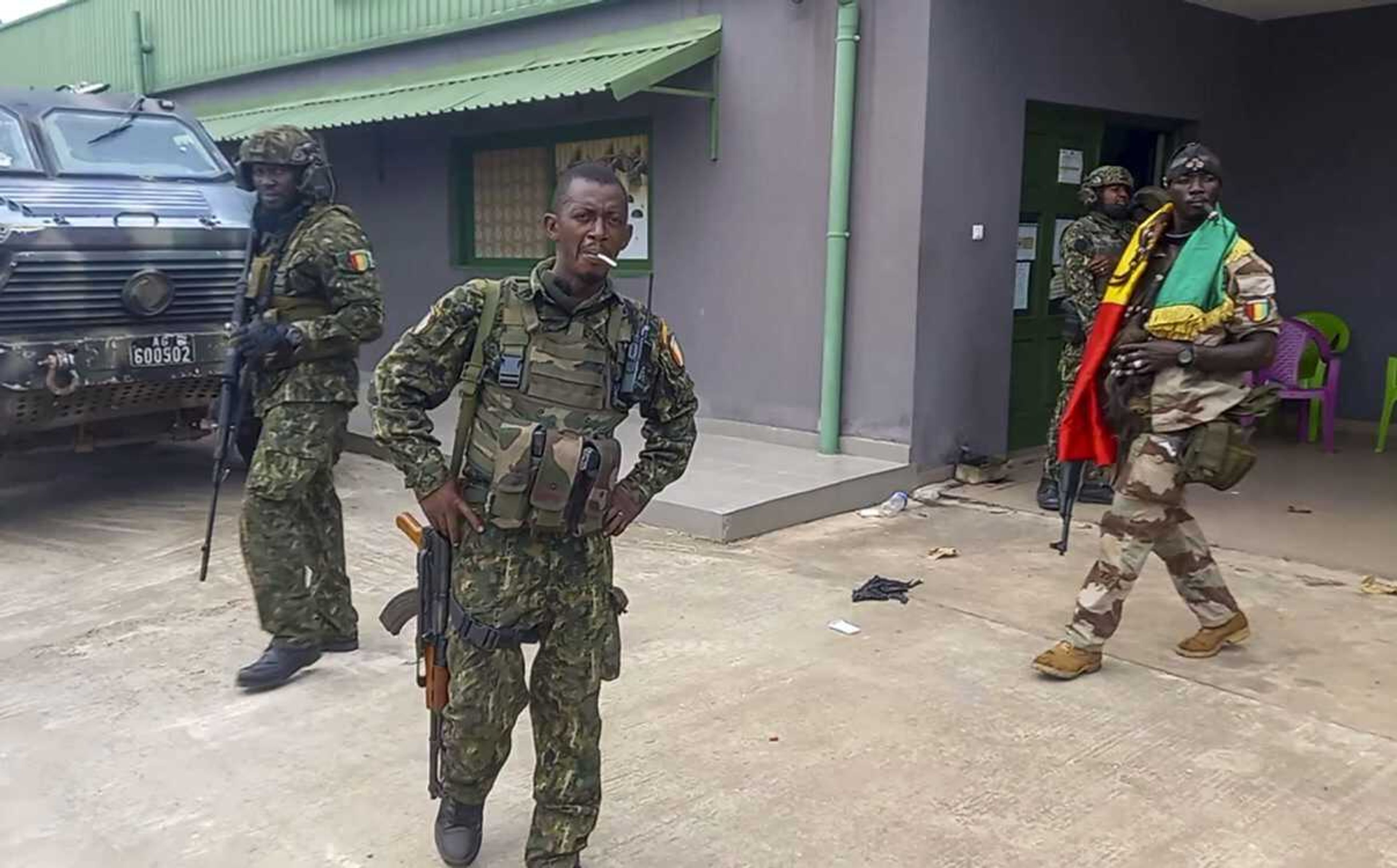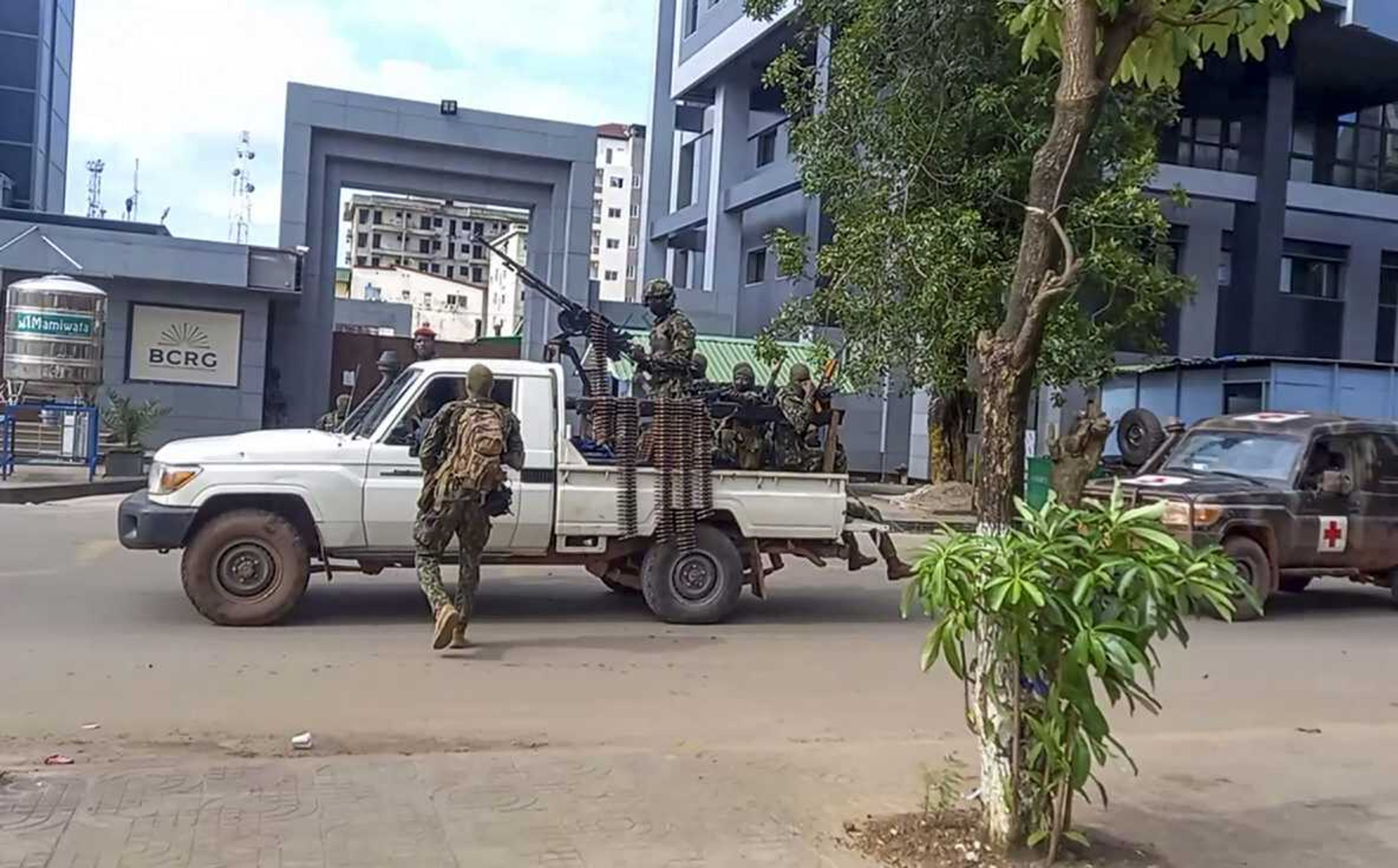Guinea's new junta leaders seek to tighten grip on power
CONAKRY, Guinea -- Guinea's new military leaders sought to tighten their grip on power Monday after overthrowing President Alpha Conde, ordering the soldiers from his presidential guard to now join the junta forces and barring government officials from leaving the country...
CONAKRY, Guinea -- Guinea's new military leaders sought to tighten their grip on power Monday after overthrowing President Alpha Conde, ordering the soldiers from his presidential guard to now join the junta forces and barring government officials from leaving the country.
After putting the West African nation back under military rule for the first time in over a decade, the junta already had dissolved the National Assembly and the country's constitution. On Monday, regional military commanders replaced Guinea's governors as the junta solidified its control.
Junta President Col. Mamady Doumbouya said the new military regime would not pursue vendettas against political enemies, but he also instructed the officials he'd summoned from Conde's deposed government to turn over their passports immediately.
"There will be no spirit of hatred or revenge. There will be no witch hunt," said Doumbouya, 41, addressing officials in a red beret and dark sunglasses beside a throng of armed soldiers. "But justice will be the compass that will guide every Guinean citizen."
"For former members of the government, travel outside our borders will not be allowed during the transition," said Doumbouya, who had led the Guinean army's special forces unit before seizing power Sunday. "All your travel documents and vehicles must be handed over to the general secretaries of your former departments."

The military junta has refused to issue a timeline for releasing Conde, saying the 83-year-old deposed leader still had access to medical care and his doctors. The West African regional bloc known as ECOWAS, though, called for his immediate release and threatened to impose sanctions if the demand was not met.
Conde's removal by force Sunday came after the president sought and won a controversial third term in office last year, saying the term limits did not apply to him. State television showed the junta being greeted by jubilant Guineans, some of whom chanted "Freedom!" at the passing military convoy in the streets.
While the political opposition and the junta both sought Conde's ouster, it remained unclear Monday how united the two would be going forward.
In its first comments since the coup, the longtime opposition National Alliance for Change and Democracy party said Sunday's government overthrow "carries the hope of a new beginning for our nation." But the party also encouraged the military rulers to rapidly establish the rule of law.
It also was unknown Monday just how much support the junta leader had within the larger military. As the commander of the army's special forces unit he directed elite soldiers but it was still possible others who remained loyal to the ousted president could mount a countercoup in the coming hours or days.
In announcing the coup on state television, Doumbouya cast himself as a patriot of Guinea, which he said remained poor despite decades of independence from its former colonizer, France. Observers, though, say the tensions between Guinea's president and the army colonel stem from a recent proposal to cut some military salaries.
Conde's 2010 election victory -- the country's first democratic vote ever -- was supposed to be a fresh start after decades of corrupt, authoritarian rule and political turmoil. Opponents, though, said Conde, too, failed to improve the lives of Guineans, most of whom live in poverty despite the country's vast mineral riches of bauxite and gold.
The year after Conde's first election he narrowly survived an assassination attempt when gunmen surrounded his home overnight and pounded his bedroom with rockets. Rocket-propelled grenades landed inside the compound and one of his bodyguards was killed.
Violent street demonstrations broke out last year after Conde organized a referendum to modify the constitution. The unrest intensified after he won the October election, and the opposition said dozens were killed during the crisis.
In neighboring Senegal, which has a large diaspora of Guineans who opposed Conde, news of his political demise was met with relief.
"President Alpha Conde deserves to be deposed. He stubbornly tried to run for a third term when he had no right to do so," said Malick Diallo, a young Guinean shopkeeper in the suburbs of Dakar.
"We know that a coup d'etat is not good," said Mamadou Saliou Diallo, another Guinean living in Senegal. "A president must be elected by democratic vote. But we have no choice. We have a president who is too old, who no longer makes Guineans dream and who does not want to leave power."
Larson reported from Dakar, Senegal. Associated Press writers Babacar Dione in Dakar, Senegal, contributed.
Connect with the Southeast Missourian Newsroom:
For corrections to this story or other insights for the editor, click here. To submit a letter to the editor, click here. To learn about the Southeast Missourian’s AI Policy, click here.









